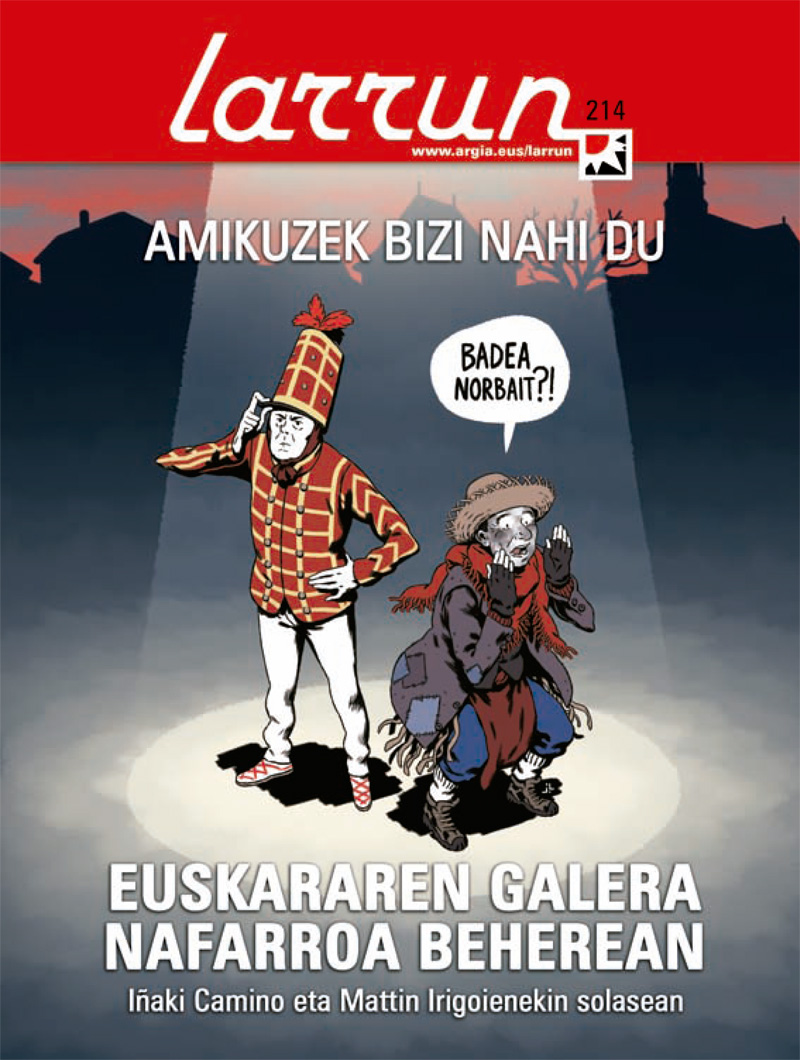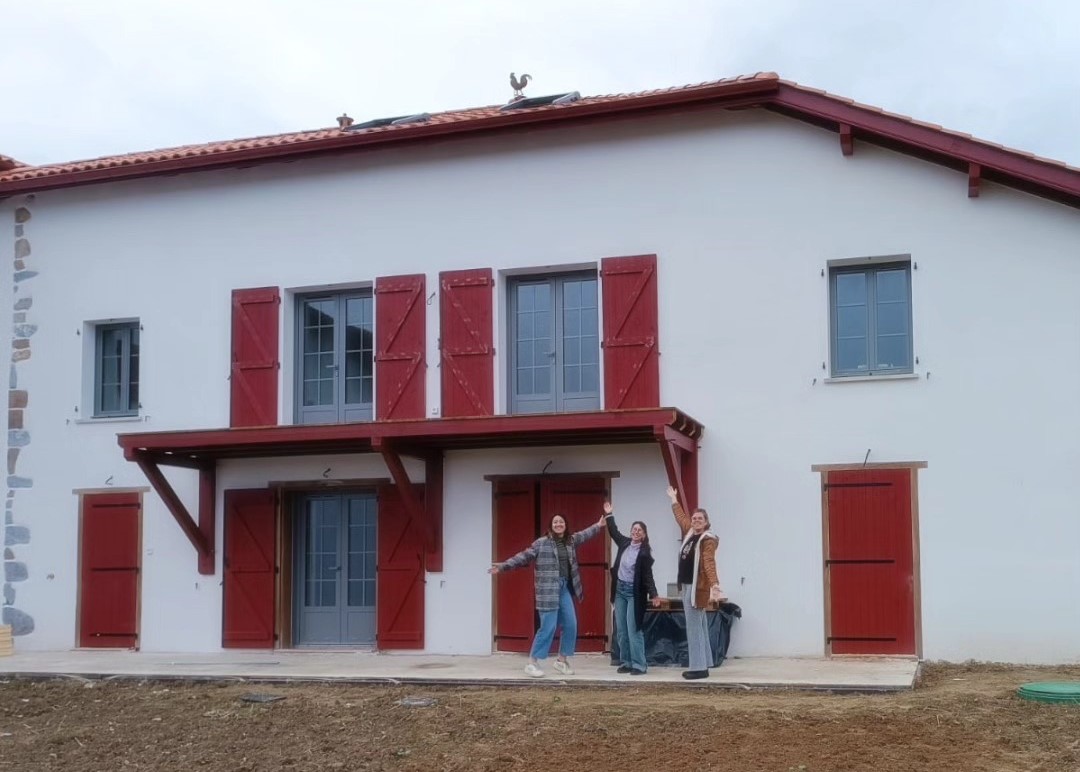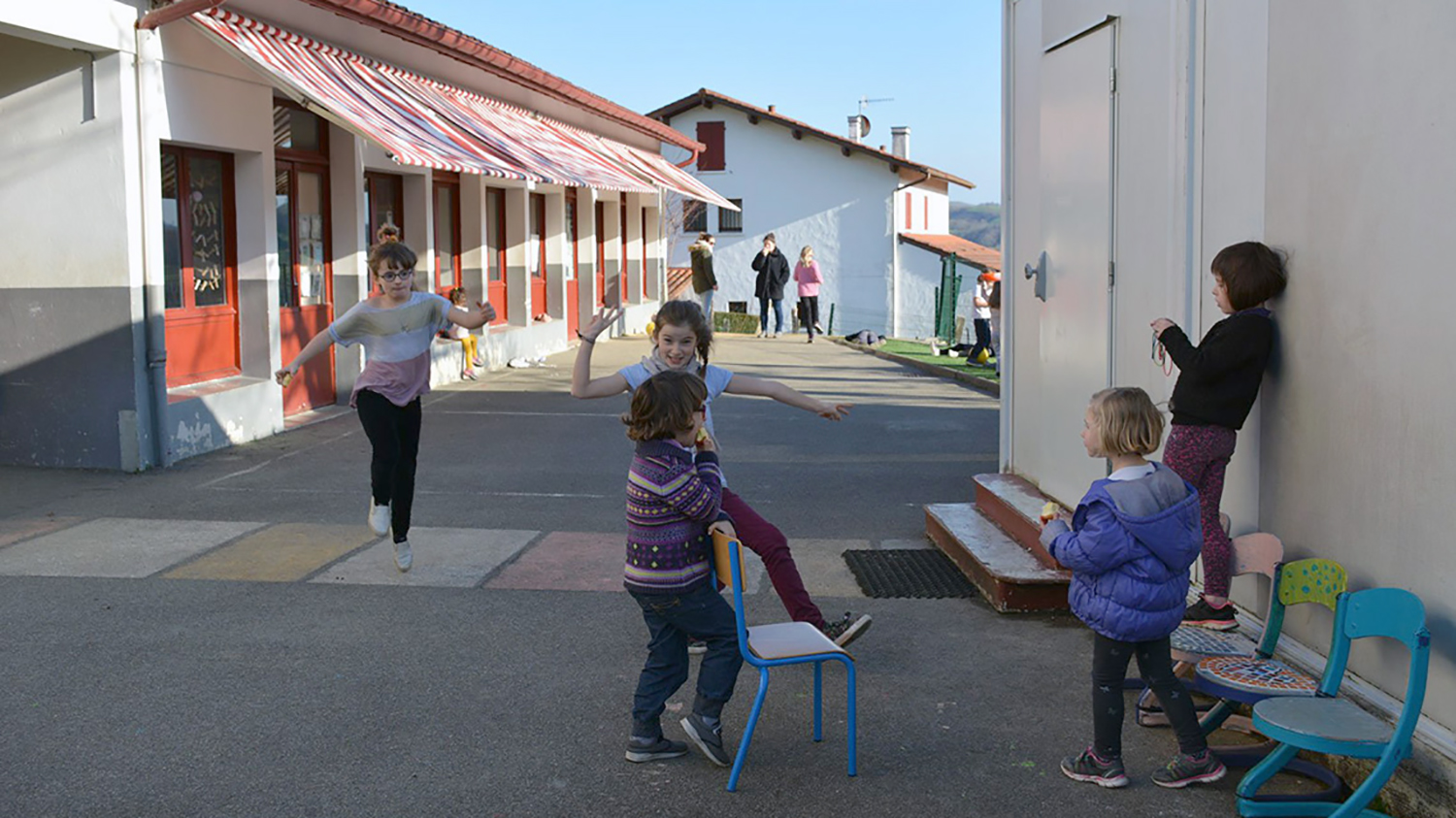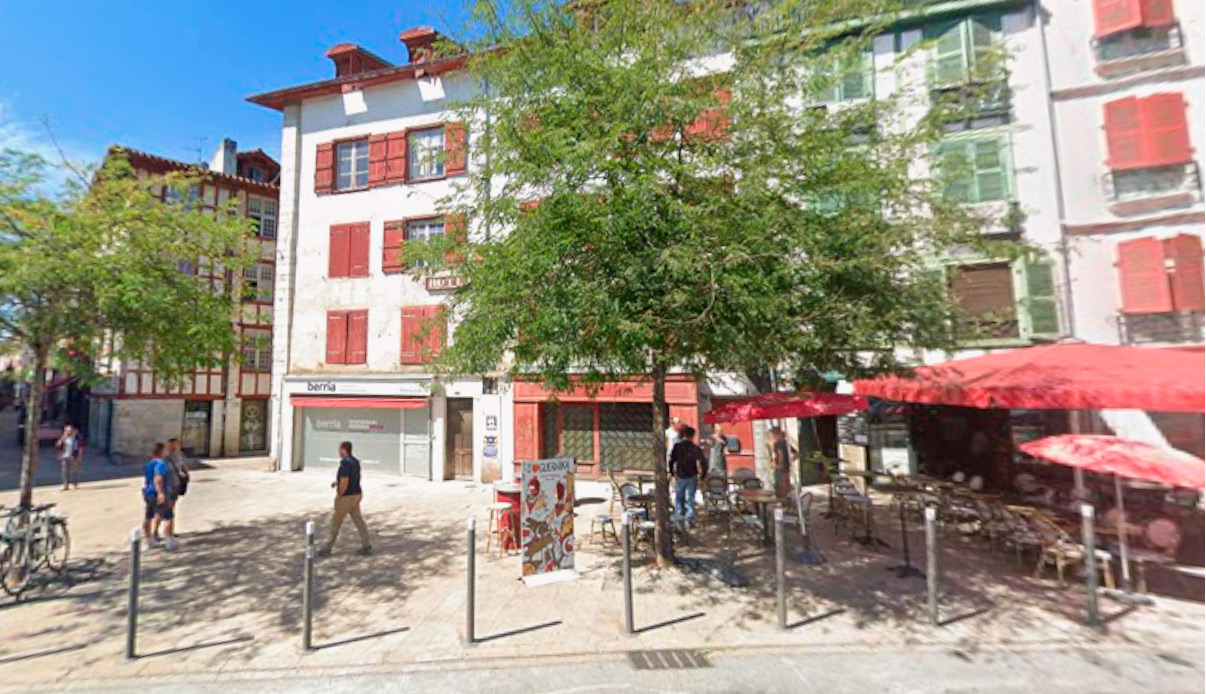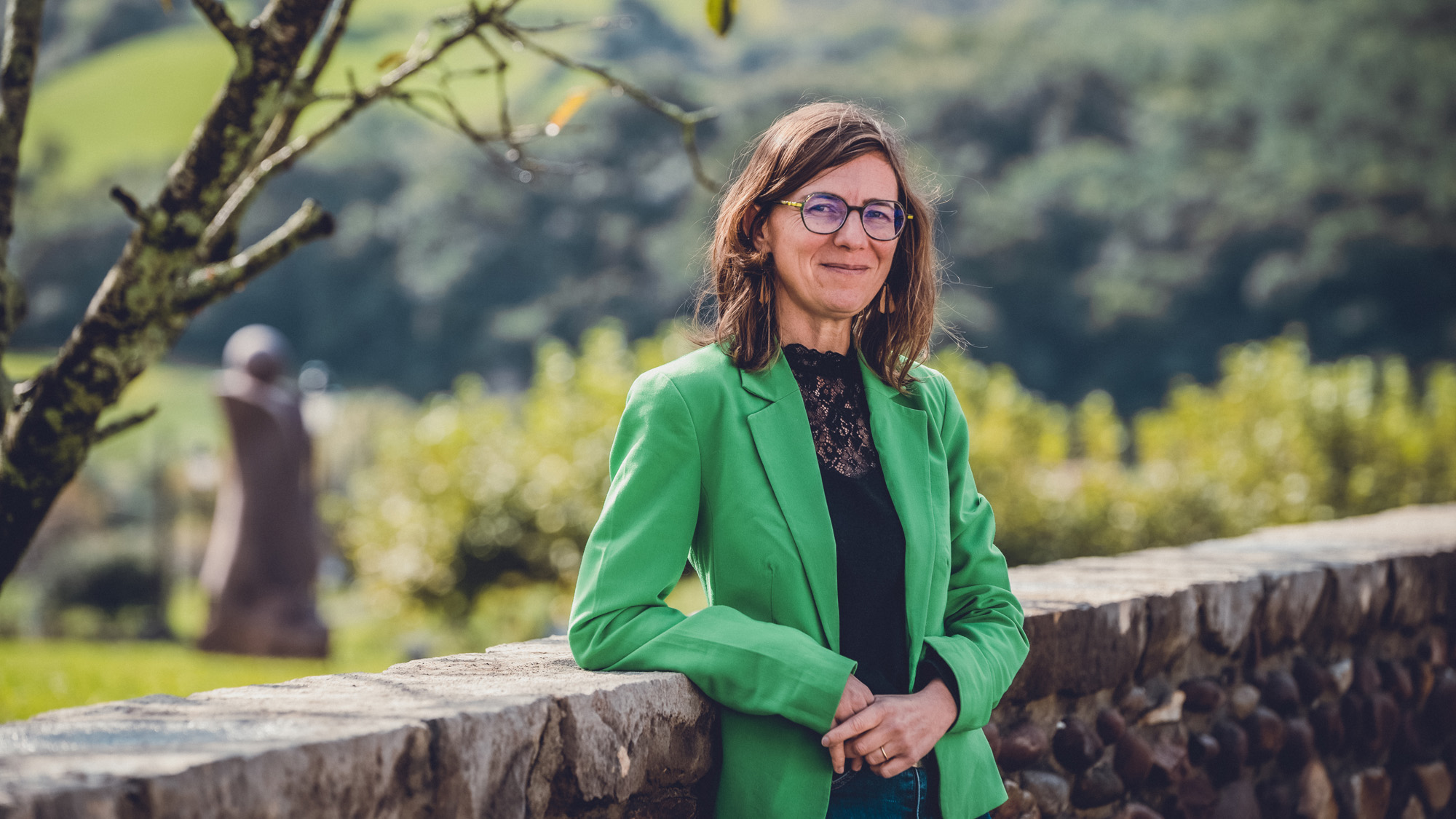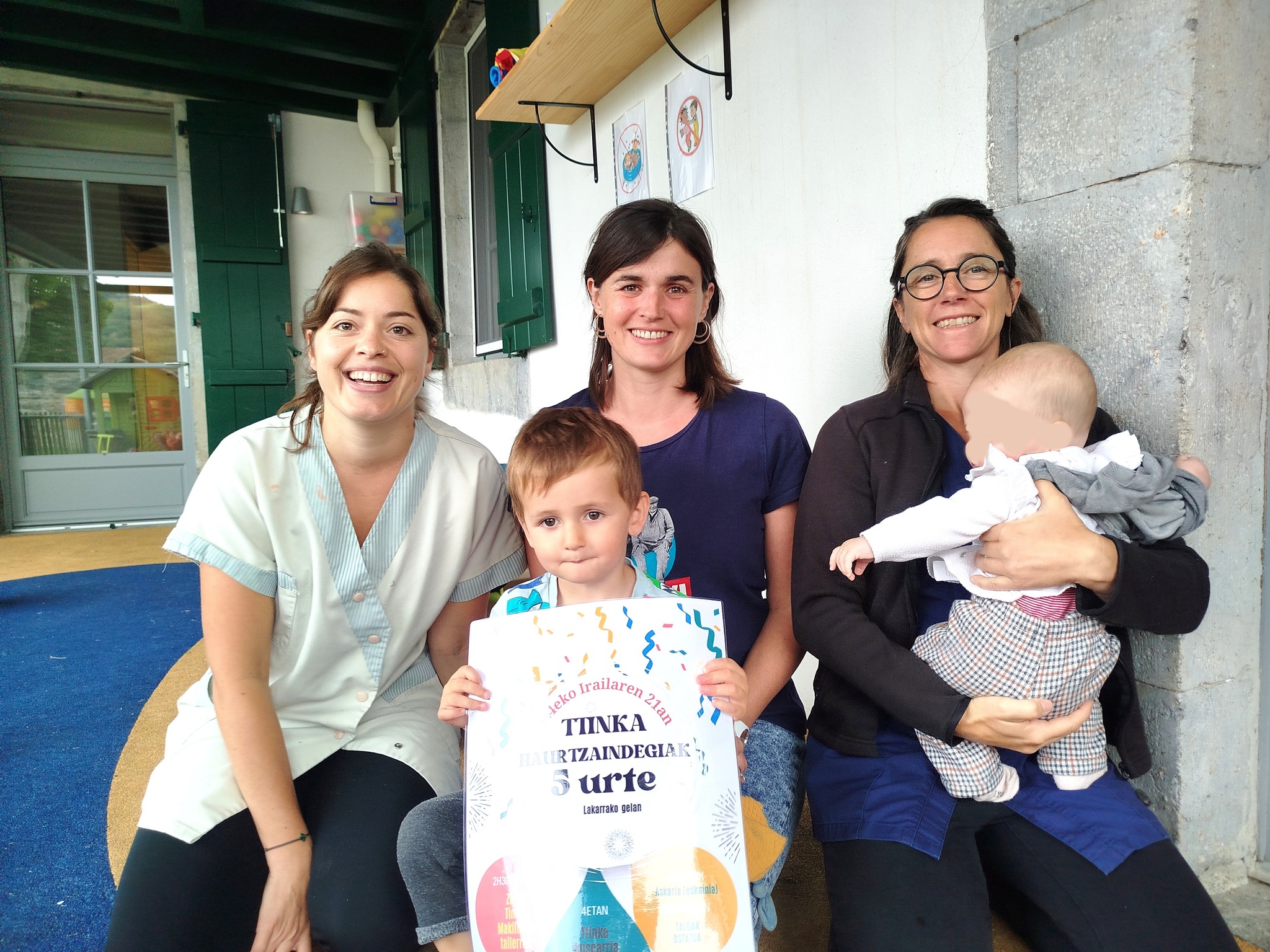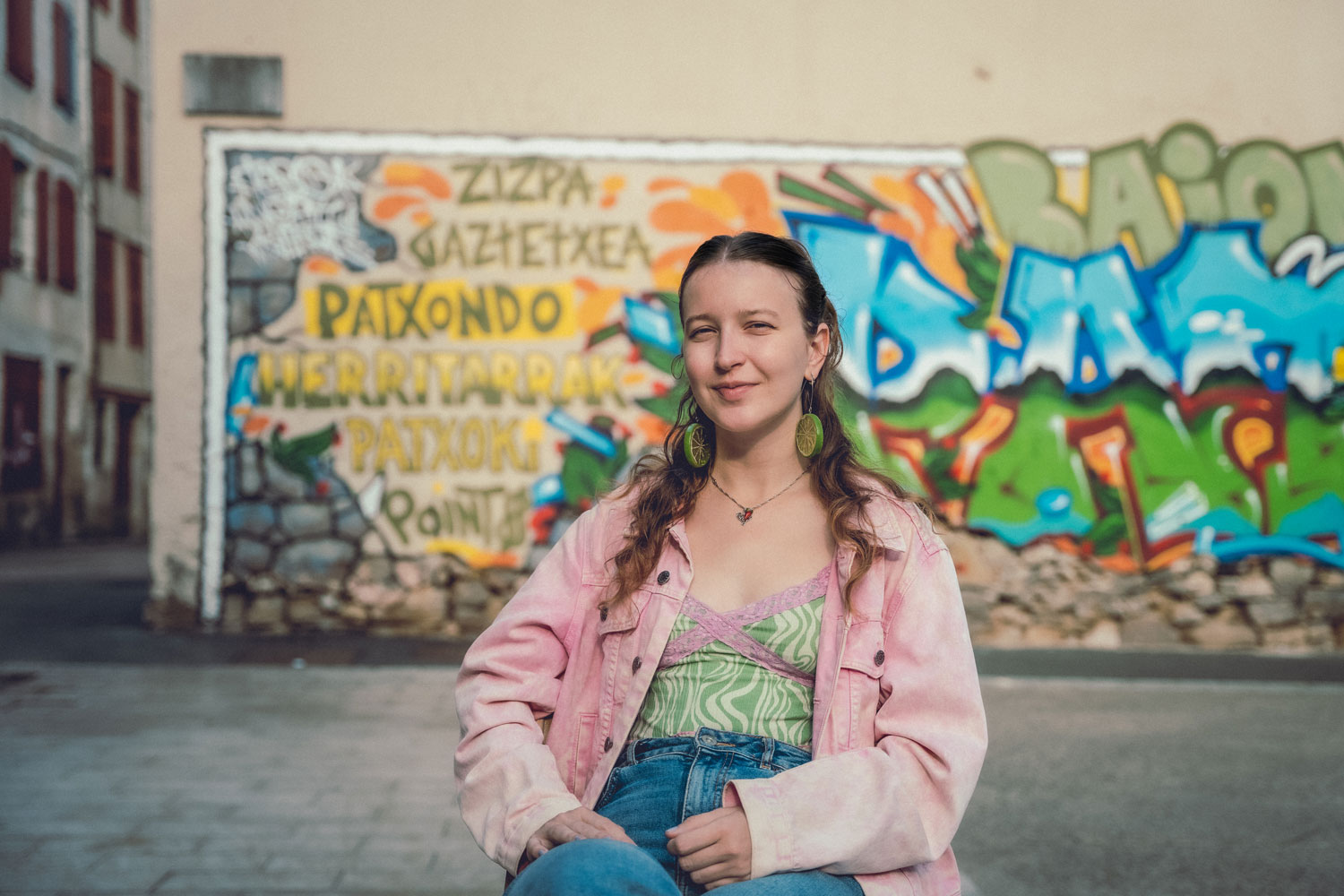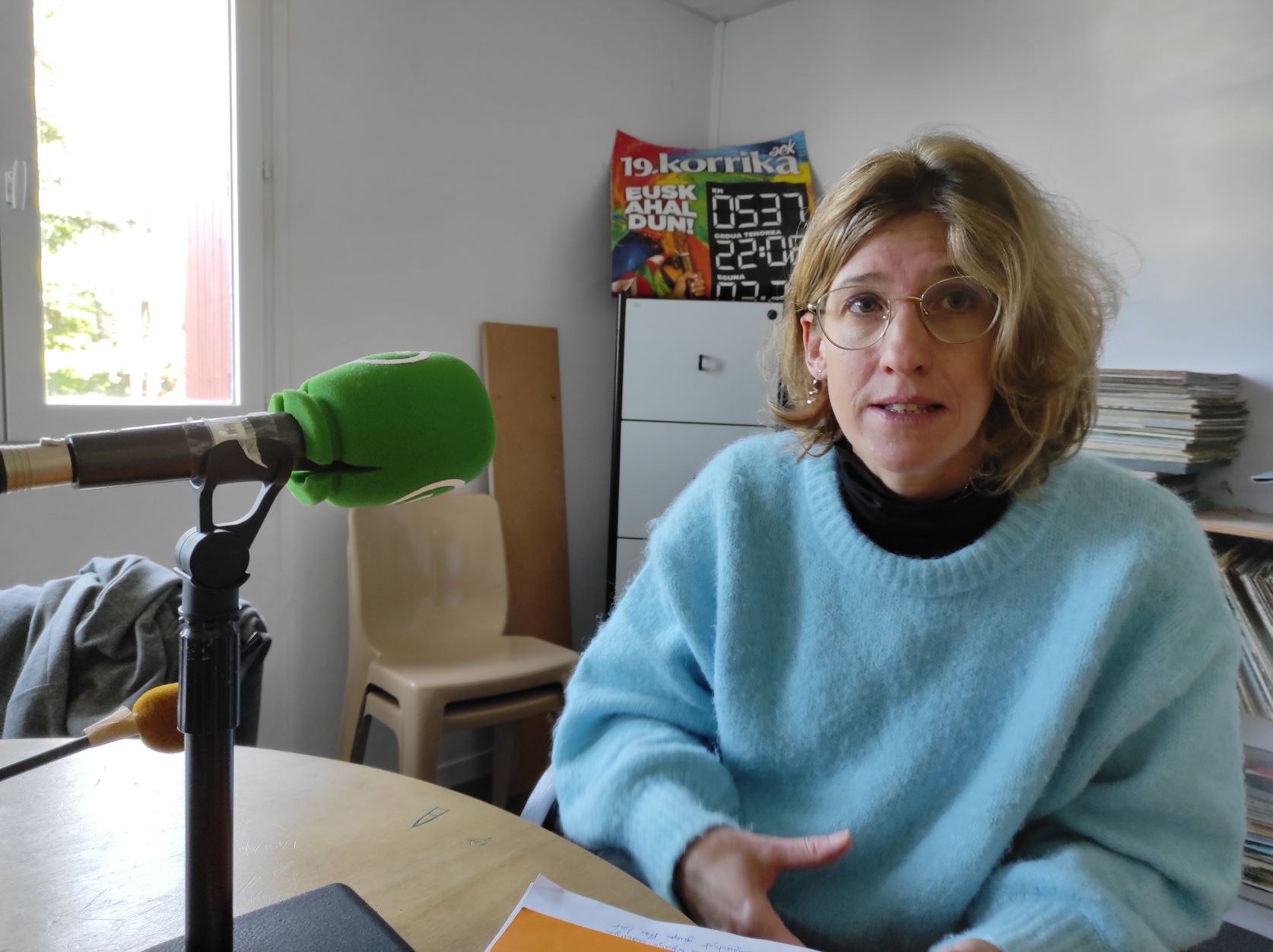With Iñaki Camino, on the old Basque of Amikuze (h)
- Iñaki Camino Lertxundi (Donostia-San Sebastián, 1963) is a professor at the Faculty of Letters of the UPV/EHU in Vitoria-Gasteiz. In the 1980s, he collaborated with ARGIA. At that time he began his linguistic research in Aezkoa and other counties. This autumn he edited the book “Amiküzeko Euskara” by the hand of Euskaltzaindia.

Looking at Amikuze's Basque, why?
In 1985 I was recording in Aturri and Baxenabar, also in Oragar de Amikuze. I worked at Amikuze from November 2005 to 2015. I have always remembered that being a border voice there are some features… Let’s say, some of Baxenaberri’s innovations have come to Amikuze but not all, some of Zuberoa’s novelties are in Amikuzen but there are some Zuberoa features that don’t matter in Baenabar and Dialenabat, but in Amikuzen there are some Bardoze features that don’s not in Zubikuze. Later I learned that Jean Etxepare (1912), René Lafón (1955), or Henri Guiter (1973) also saw something special in Amikuz.
Since that first interview in 1985, in addition to reviewing all documentation on the subject, he has interviewed a witness in all the villages of Amikuze.
One or two and three of Behauze. I've been to 29 out of 31 villages. I have always tried to interview witnesses who were born in every village and whose parents also had from here. This fails in the case of Donapaleu: On Donapaleu street, I have not found Basque witnesses who meet the above requirements.
You write and say, "Amiküze." We believed that “ü” was nothing more than a matter of Zuberoa.
That “ü” is not said in all the towns of Amiküze, but most do, and everyone looks north, in those of the south it is not done.
You also say “Amiküzeko h-Euskara”, you put it in the whole book with a smaller “h”. Do you claim the “Heuskara” of the old books?
I do not claim anything. Perhaps if ever the word “Enuskara”, then that “n” has been lost and has left its mark as a sigh… We have never read that “Heuskara” (or “Heskuara” or “Hüskara”) was nowhere, and that is not the case. In some villages of Amikuze some elders, not all, sighs and say “Heskuara”, some weaker and some stronger.
"In some villages of Amikuze there are elderly, not all, who sighe and say ‘Heskuara’, some weaker, some stronger."
In these years, as in other parts of Iparralde, you have seen the Basque chain cut off with your own eyes.
In Heleta, I met a marriage that spoke Basque in 1982, and their children didn't know Basque. It was the spring of 1982, and I remember those parents asking me what independence was like in the South.
The loss process has been going on for a long time. In 1898 Hiriart-Urruti notes that in Hegoalde, Navarra, things are wrong, but in Ipar Euskal Herria “it is old who speak no more than Euskera”. He says that if we leave Zokoa, on the road to Santagraza, we will see many helmets and French, and that the need for French is going to pass on to us every time. By then things were already changing, then we know they've changed, over the last 30-40 years they've changed a lot. What we do not know is what has come.
In explaining the characteristics of Amikuze’s Euskera, you said that in Herria there will be few places where people have moved so much from one place to another, the phenomenon of the landlords is also present in [here there were many tenants who were going to renew their contract with the owner of the dwelling year after year] and the Basque country has a great diversity.
32 peoples are many. Some people went to the market of Hazparne, others to the market of Maule, or to the market of San Juan de Pie de Puerto,… Then many had a village father and a mother of another, because an owner has given them the opportunity to work there a year or five, and then they go to another with their children… In Amikuze there are many things like this. This entails plurality, but on the other hand, this crossing should be the one that leads to unity, because crossing implies mutual knowledge, confusion and, at the end, the most specific characteristics that are most pointed out are losing and those that can be of all prevail.
Donapaleu is a central player in that evolution. Well… “Dnaplü”, as you say.
They say it like this, Dnaplü, disappearing or undoing the first vowel. It is very difficult for us to match. The importance of Donapaleu? Critical mass is needed for innovation to occur. When someone of prestige invents an innovation, it plummets and spreads to others. The market, money, work opportunity, leisure… all that has happened in Donapaleu a long time ago. Perhaps the innovations have been taken out, but the prestige and attractiveness of the city has caused the locals to take them home. I think it's a hypothesis, that Donapaleu is strong enough for this to happen.
He has highlighted the two languages of the Baxenabarrena region as very special. One in Amiküze and one in Baigorri.
In Baigorri there are linguistic news that you will not find in other counties of Baja Navarra. There are news from Nafarroa Garaia that are only heard in Baigorri, and at the same time, the news from other counties of Baja Navarra is missing in Baigorri. Likewise, the news of Lapurdi that is only heard in Baigorri de la Baja Navarra. We know that Baigorri’s wine and pork was bought by the Baionese… and the people of Pamplona also bought it.
The linguistic reality in the center of Baja Navarra, which Garazi, Arberoa and Oztibar have, is not shared so much by amikuztarras and baigorri, they have close ties with Zuberoa and others with Lapurdi.
You claim that Zuberoa articulates the whole east of the Pyrenees, and that is noted in the dialects of the east.
In a 2011 article, the old Basque Country claimed batua, that is, Mitxelena, and when she was raised V-VII. That in past centuries the Basque country had to be more united than now, that there had to be a more Coinean voice, I proposed that a group of Basques had separated from that trunk: the zuberotars and the Roncaleses. These are the ones who, because of their old and new characteristics, have separated themselves from the others. Then came all the other divisions, those of the east, then those of Álava, Bizkaia and perhaps a party of Gipuzkoa, then those of the center and the different branches. Their chronology and the search for tests are still in the early stages.
I believe that at that time the area of Aturri, Bardoze, Amiküze, Salazar, Roncal and Zuberoa were more socially united, economically, when they were more pastors. The herds to the Bordelese Landes had to be brought to the Landes so that the sheep and the cows would drink from where there is abundant water. That is why there are linguistic features that do not exist in the rest of Lapurdi and Baja Navarra but that exist in Bardoz, Lehuntz, Urketa, Amiküzen and Zuberoa. I don't know if it was because the cattle needed water to drink, but the case is that the capital, Mugerre, Lehuntze and from there to Zuberoa there is a continuum and a part of union.
And all of these innovations happen in one place. In Zuberoa, perhaps because it was a Pastoril society. The legislation of the pastoril society of Zuberoa is terrible, the characteristics that Xarles Bidegain has exposed in this regard in the Atlas of the Basque Country are nowhere else in the Basque Country. The power of the East arose, perhaps, in a society that lived from zeal, including cities and markets. Like the force that once existed in Vitoria-Gasteiz, which reached Zegama, Urola, Deba Ibarra or Bizkaia.

Biarno also influences Amikuze.
Yes, it's evident in the lexicon. It has been analyzed above all in Zuberoa, in evil, cultural, instrumental words… In the pronunciation that “ü” may have come from Biarno. In morphology, something also starts to appear, Manu Padilla has found something, and when we have a more elaborate Basque dialectology, we may have other characteristics.
In Zuberoa and Amikuze, people used to go to military service knowing Euskera and Bearnesa, and they sent the boys to Bearn to train in the markets for a year. In military service or in school, they would learn French better. The phenomenon of the Basque speaking Caskoin has disappeared from the root today, but twenty years ago it was a normal phenomenon here.
He says that in Amikuze they have always worshipped the Basque of Lapurdi.
For starters, there's no literature in Amiküce. There is a doctrine book of the year 1740, published in Pau by order of the bishop of Dax, but from there I see no text of a amikuztarra, they are very modern. But Baxenabar doesn't have any literature either. The Bajonavarras of the 19th century have written looking at the bishop of Baiona. Hazparne's is also admired by the speakers, by the priests and the Misionists, just as Zuberoa's is considered the abila. Besides Hazparne's, Sarriko's speaker sang Garazi's, Oztibar's Baigorri's, and Baigorri's Lapurdi's.
Jean Haritxelhar himself tends to find the Bajonavar language, eat the words, as Jean Etxepare did before. It is customary for the Euskaldunes of Lapurdi and Zuberoa to look more handsome and for those of Baxenabarrena not.
Is Sulatino more influential than Hazparne?
Maule and Zuberoa have much more influence on most of Amikuze. At Oztibar it has spread a little and has not reached Garazi, as it is an area of large mountains between them. Besides the orography, the strength of the markets is concentrated on Fridays in Donapaleu, on Saturdays in Maule. And as Zubero’s influence enters into Amiküzen, enters Donapaleu’s influence into Zuberoa, Ithorrotz, Olhaibi, Berroeta…
"I believe that before the area of Aturri, Bardoze, Amiküze, Salazar, Roncal and Zuberoa were more socially united, economically, when they were more pastors"
You, even though you are not a socio-linguistic person, have included in the book important details of the decadence of the Basque Country.Have you found the contempt of the dialect among your witnesses?
I have not felt that the citizens I interviewed for the study despise their voice. I believe that this influence of French culture, of the strength of the French State, has entered into force until the farmers' kitchen and in the end two plans have been left: the past and the present. The present is the economy, the maize, the soda, Lur Berri… and there the Basque does not work. In the past, yes, but it had happened, it was manual maize harvesting, close relationships between neighborhoods, a different world. In my work, a witness of Domintxin mentions that he has been lucky enough to know both worlds, since the world of the past lived in Euskera, and the world today is modern, with instruments, jaws… and French. Like in Nafarroa Garaia, here are also those two planes in people's imagination.
They do not feel that the French hegemony has caused an interruption, they are still in Basque with me normally but then it is noticed that their environment is French. One of Gamue’s witnesses says that “when the young people of the town are playing ‘tuts’ in French, it means that they have slipped into French, but that would not be possible if the same witness did not do so in French around them. There has been an interruption, it is happening, it is going to happen, it is going to move from house to house, but the pain or joy that this produces inside is not clear how it is if you do not do a thorough job.
You are in the book: “Euskal Kanta Berria, Ikastolak, Abertzaleak… In any case, all these Basque activities or abertzales have failed to prevent the loss of their own language that is taking place in Ipar Euskal Herria”.
Yes, but it is also true that they are working and the extent to which they do so will show their fruit. But the loss of Euskera in Amikuze is remarkable. In the regions of Garazi, Iholdi or Baigorri, in small towns, young people speak or can speak in Basque. Amikuze's French is more remarkable.
You know another region that makes the reverse of Amikuze, Aezkoa. It has been shown here that another path is possible, that is, to recover.
Yes, when I arrived in Aezkoa [in the early 1980s] there were zero Basque children and today all young people know it. In Aezkoa, or in Aoiz, or in Otsagi, or in Roncal, they are the Basque recipients. They know Euskera, but it's a school thing, they don't use it among them. And if you ever write something, you immediately realize that it's the Basque ground in the Castilian mill.
But the Basques of the future need a worthwhile Basque. To be univocal in the drafting of a text, unambiguously, “orderly” among quotation marks, intelligible at first reading, valid for future issues. Otherwise, the Basque country will remain subordinate and no one will take it into account.
The Basque dialects, the old Euskera, a man like you who studies them and loves them in the essentials… How do you live that these have ended and that the Basque who is going to go ahead is going to be another, which in many ways is insufficient?
I am a purist. But when I do this work, I'm not Euskaltzale, I'm a researcher. Otherwise, it would burst. I try to gather as much as possible the Basque of a people and then analyze it. Then I think about what I've felt there, but that's more for sociolinguistics.
Just as the old thin wheel tractors were over, so will the Basques like us. If the Basque is given prestige, the Basque will need a good level, a bad Basque will not serve as a photocopy of translation. The only way is for the Basque Country to be trained and suitable for the time and society that corresponds to it, but that is not yet born.
Nafarroa Beherean, Aiherrako 'Beltzegitea' etxean kokatuko da Eguzkilore haurtzain-etxe berria. Euskara, natura eta motrizitate librea oinarri harturik, heldu den apirilean hasiko dira zerbitzua eskaintzen.
The problem of the afrancession of the names of the places of Euskal Herria is not only due to the lack of consideration of the language in the signaling panels, but also to the execution of a decision on the domiciliation that was taken a few years ago.
Ultimately, the... [+]
Larunbatean ospatu dituzte Ttinka mikro haurtzaindegiaren bost urteak Lakarran. Baxe Nafarroko euskara hutsezko egitura bakarra da, Euskararen Erakunde Publikoaren B ziurtagiriduna.
On May 17, five Euskaltzales of Ipar and Hego Euskal Herria performed an action coinciding with the call made by the students of the Bernat Etxepare lyceum to mobilize in favor of the Basque. On the wall of the Baiona Subprefecture, a message was sent to the authorities of the... [+]
“Geldi euskara zapaltzea” lema berriz hartu du Euskal Herrian Euskaraz taldeak larunbatean egin duen prentsaurrekoan. Maiatzaren 17an, esaldi hori Baionako suprefeturan tindatzeaz akusaturik, irailaren 10ean epaituko dute Gorka Roca Torre.
Ikasturte honetan, lehen mailako ehun eskola elebidunetan 5.700 ikaslek ikasiko dute. Bigarren mailan hamasei kolegio eta lau lizeotan 1.600 dira. Zailtasun nagusia aurten ere kolegioan euskararen eta frantsesaren arteko oren parekotasuna erdiestea da.
Start of the summer. EHZ festival hangover (atx, headache). You want to breathe after a charged course. Flush the head. Reconnect key elements. Take some time with family, see old friends again and rest (a little) in the daily struggle. Really? !...
As a family, walk to the... [+]
Ms. Judge of the Bayona Court of Justice dismisses:
In March, I was judged by some Euskaltzales in Baiona for taking part in some of the actions we have taken to denounce the unfair treatment suffered by the Basque authorities in the French state. At the beginning of the trial,... [+]
Maddi Kintanak Baiona, Angelu eta Miarritzeko gazteen euskara aztertu du bere tesian. Hitz berriak sortzen dituzte baina baita hitzak beste hizkuntzetatik hartzen ere, besteak beste, interneten eraginez.







